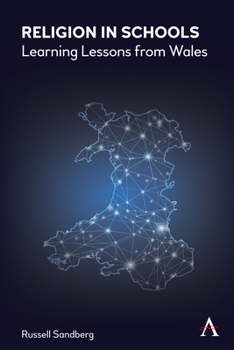Religion in Schools: Learning Lessons from Wales
To what extent should religion be taught in classrooms? Should lessons also cover non-religious beliefs? Should the teaching of religion be compulsory or should it be a matter of choice by the parents or the child? Should faith schools be allowed to teach their religious beliefs? Should religious worship be compulsory for all pupils?
Questions of how religion operates within schools prove controversial and divisive. This book explores radical changes that are being made in Wales and the lessons that can be learnt. The Curriculum and Assessment (Wales) Act 2021 introduces a new curriculum for Wales and makes the teaching of religion, values and ethics compulsory for all. As the name of the new subject suggests, the study of non-religious beliefs will now be explicitly included and groups such as humanists will play a role in the writing of the curriculum.
The 2021 Act will mean that the law on the teaching of religion in Wales will differ from England for the first time. In England, the rules developed in the 1940s continue to apply: these require religious education that must 'reflect the fact that the religious traditions in Great Britain are in the main Christian' and daily religious worship which must be 'wholly or mainly of a broadly Christian character' subject to a parental opt out. Critics have pointed out that these laws are outmoded in today's multicultural and largely secular society and that many schools fail to comply with them. This book will explore what can be learnt from developments in Wales to shape the law in England. It will explore reform suggestions in England and the Welsh law, potential shortcomings of the Welsh legislation and areas that the 2021 Act leaves untouched, namely the rules on religious worship. The book is written by a leading authority on the interaction of law and religion whose work fed into Welsh parliament debates on the 2021 Act.





